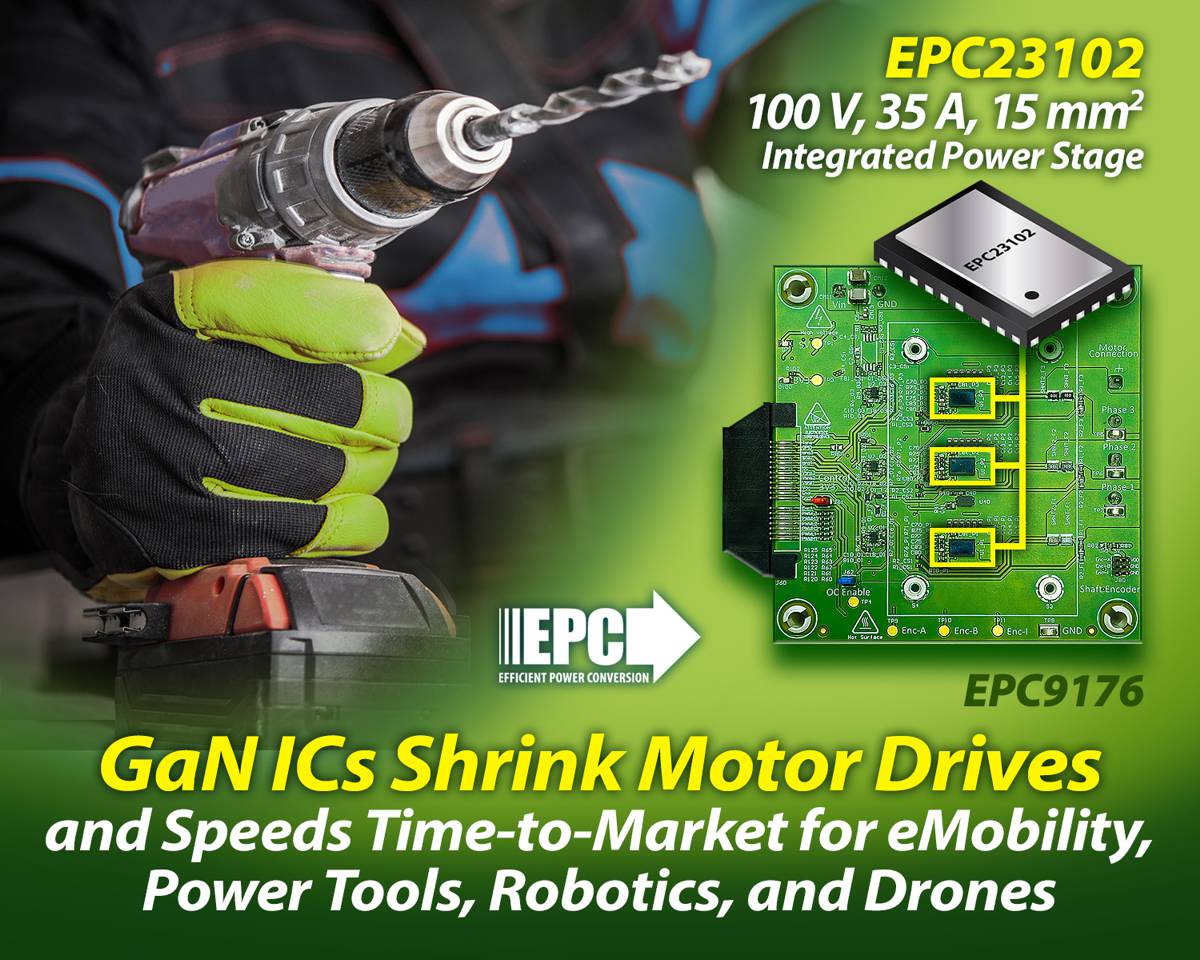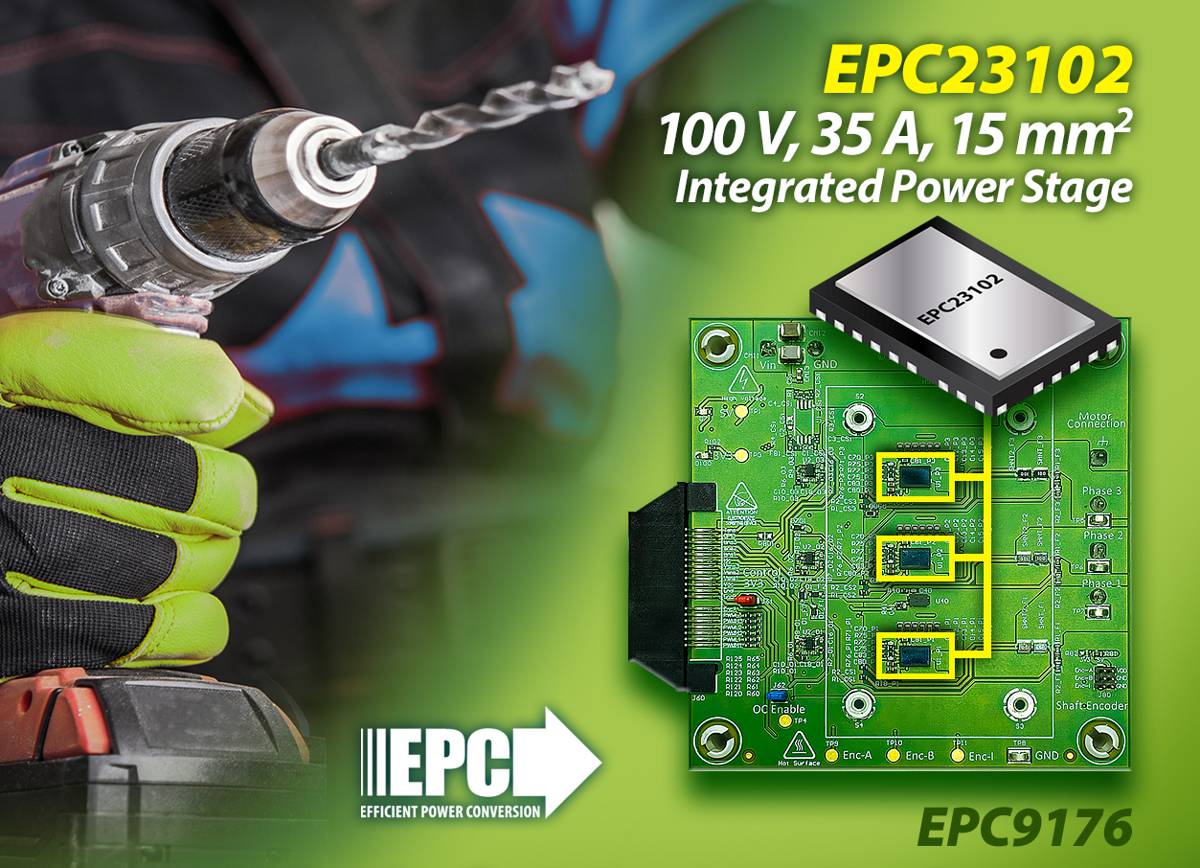EPC shrinks Motor Drives with GaN ICs for eMobility, Power Tools, Robotics, and Drones
EPC announces the availability of the EPC9176, a 3-phase BLDC motor drive inverter using the EPC23102 ePower™ Stage GaN IC with embedded gate driver function and two GaN FETs with 5.2 mΩ typical RDS (on).
The EPC9176 operates from an input supply voltage between 20 V and 80 V and can deliver up to 28 Apk (20 ARMS). This voltage range and power level makes the solution ideal for a variety of 3-Phase BLDC motor drive applications with 36 V – 80 V input including eBikes, eScooters, power tools, drones, robots, DC servo, medical robots and factory automation.
The use of the EPC23102 integrated GaN-on-silicon device offers higher performance in a smaller footprint with significantly reduced design effort requirements for fast time to market.
The EPC23102 is a fully integrated power stage with 100 V rating including the half bridge FETs, driver, level shifter, and synchronous bootstrap charging, with an enable pin for low quiescent current in disabled mode and 5 V bias.
The EPC9176 mates with an assortment of compatible controllers, supported by various manufacturers leveraging existing resources for quick development purposes that reduce design cycle times. EPC offers interface boards (EPC9147X) to operate this inverter reference design with the most common motors.
The EPC9176 contains all the necessary critical functions circuits to support a complete motor drive inverter including gate drivers, regulated auxiliary power rails for housekeeping supplies, voltage, and temperature sense, accurate current sense, and protection functions.
“Designers can use GaN ICs to make lighter weight and more efficient battery-operated motor drives for a wide variety of emobility and robotic applications,” said Alex Lidow, CEO of EPC. “GaN enables motor systems that are smaller, lighter, less noisy, have more torque, more range, and greater precision while improving EMI, reducing EMI filtering and capacitor count, and eliminating electrolytic capacitors and input filter inductors.”






























